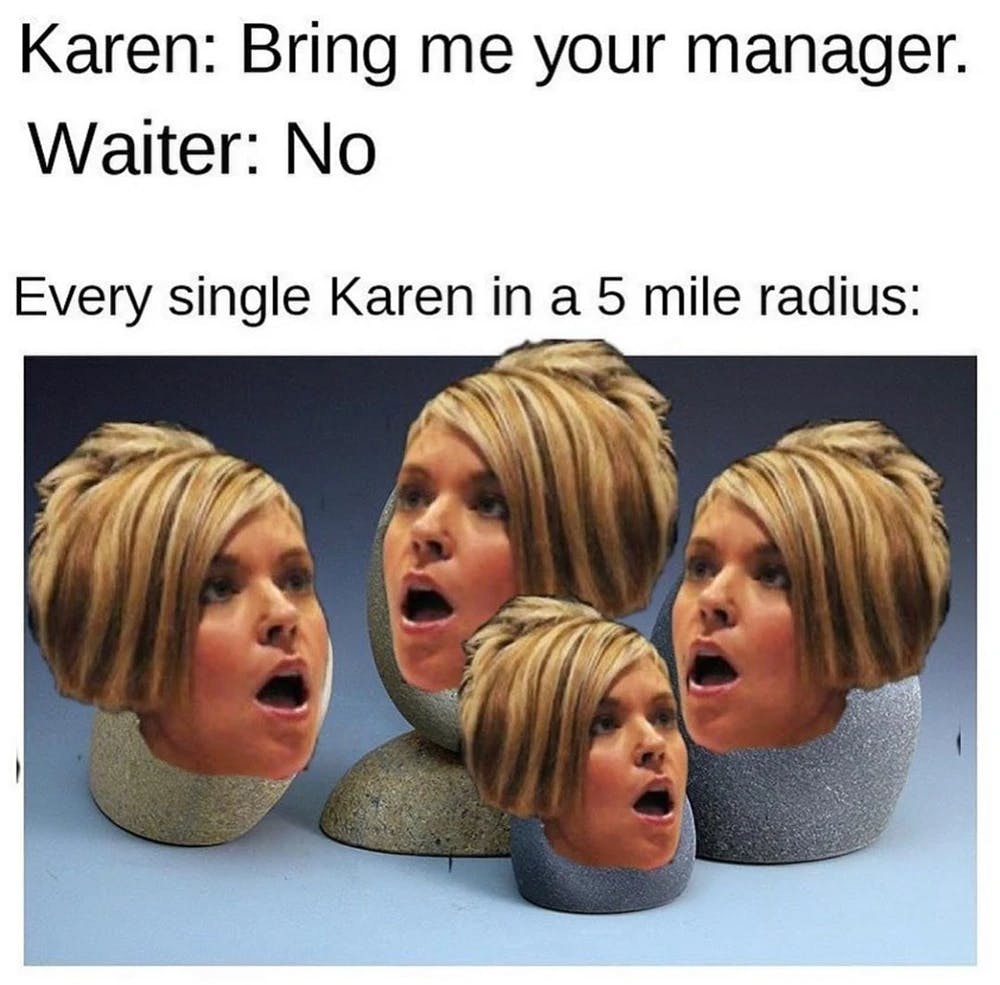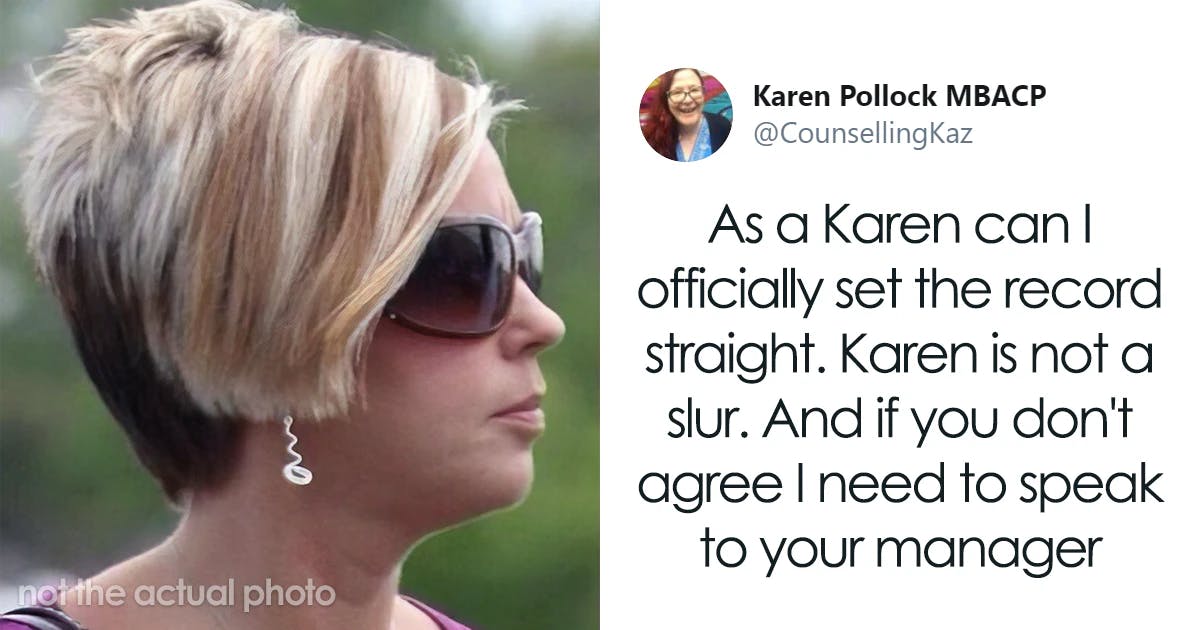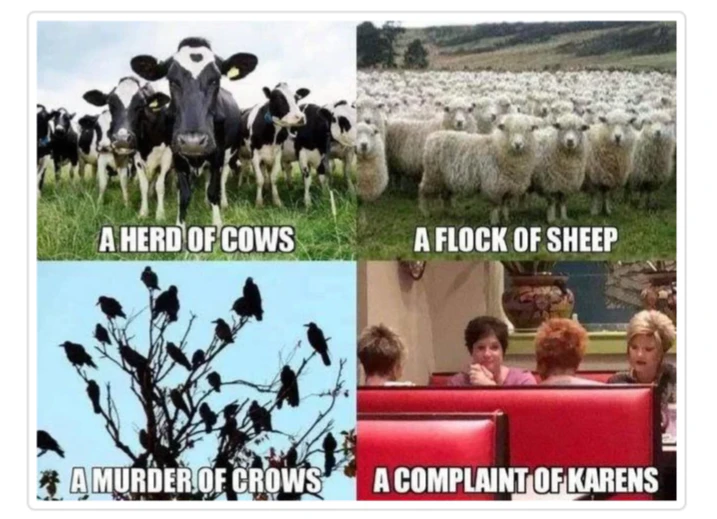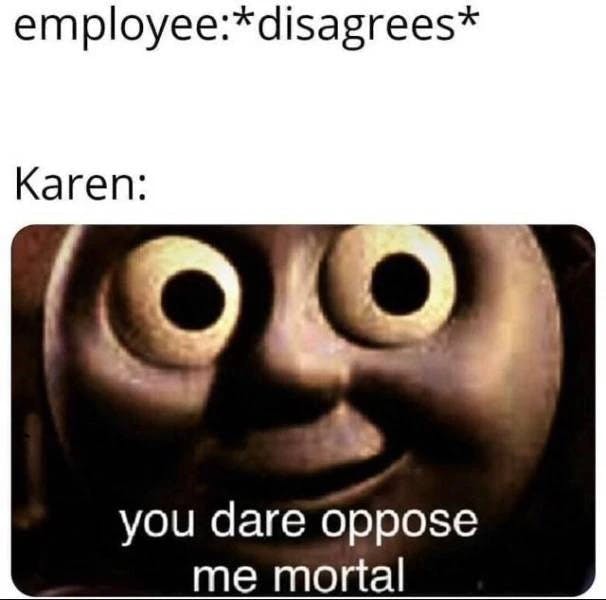No, The Karen Meme Isn’t Sexist (But It Is Hilarious)
Sometimes it’s not easy belonging to Gen Z, but it sure is entertaining. From “ok boomer” to many more, memes have become this generation’s way of coping with the real-world problems affecting them. Chief among them is the formidable “Karen.”

The top definition on Urban Dictionary describes a Karen as the woman who “gives raisins to kids on Halloween” and “drives an SUV to carpool her kids to soccer practice...better hope the ref doesn’t make a wrong call because she will sue!”
Where did this “Karen” label even come from, and why does it matter? The Karen meme has come to represent a rare moment of self-awareness in popular culture. It’s funny because it’s true—and the meme itself encapsulates one group of women’s very public entitlement that often borders on embarrassing and, usually, the ridiculous.
The Karen Archetype
The basic Karen archetype is most commonly characterized by Kate Gosselin, of TLC’s Jon & Kate Plus 8 fame (now Kate Plus 8). While many would say Kate is simply an involved parent (and has to be, with 8 kids), the majority of publicity around her presents her as an overbearing, high-maintenance mom who is difficult to work with.
The meme encapsulates one group of women’s very public entitlement.
Karens in general are most often white, middle-class to upper-class moms who drive minivans, are in multiple Facebook groups, and are heavily involved in the PTA and neighborhood watch. Managing, usually micromanaging, the schedules of their spouses and children is their full-time job. Their high maintenance attitudes inspire them to ask “Can I speak to the manager?” and they’ve got the haircuts to match.

Karens in the wild can often be observed at restaurants, department stores, or anywhere they might be able to give a hard time to an hourly employee making at or less than minimum wage — or so the formula goes. Humor aside, what can a popular meme from the internet say about this very large subset of women in America? Nothing good, that’s for sure.
Is Calling Someone a Karen “Woman-Hating”?
Back in April on Twitter, British journalist and feminist Julie Bindel asked her followers: “Does anyone else think the ‘Karen’ slur is woman-hating and based on class prejudice?” (Bindel was subsequently ratioed for the tweet, a popular term used to signify that a tweet’s content is not well-received when the number of comments outweighs the number of likes and retweets.)

It’s a popular tactic of a criticized group to claim victimhood, and this is no different. What’s so puzzling though is that its most ardent critics claim to be feminists striving for true equality between the genders. In an effort to strive for true equality, the meme shouldn’t be viewed any differently as that of the eponymous (and just as popular) Chad, or the Donald.
Karen Is Not a Feminist
If women as a collective are constantly working to be taken seriously, we can’t use sexism and misogyny as the go-to defense every time an internet phenomenon targets us. Not only is the problem very rarely stemming from actual sexism, but it makes it all the harder for those very real instances to be acknowledged.

If the feminists among us are working for equality, then the very nature of the Karen makes her the antithesis of that goal. If you’ve ever worked in the service industry you may have seen this first hand — the entitlement of the Karen archetype results from their desire to be treated differently, and better than everyone else, simply because they think they deserve it. They’re not looking to be treated like everyone else. They’re looking to hold the unfortunate people who serve them to an impossibly high standard that they will inevitably fail to meet, thus apparently justifying their horrible treatment of them.

In fact, it’s not unreasonable to say that Karen is the anti-feminist of our time. Equality for everyone else would mean equality for her, and the entitlement this paradigm thrives on would cease to exist.
Closing Thoughts
Memes have the unique ability to perfectly explain a particular problem or issue plaguing our culture — a modern solution for modern problems, you might say.
For many, the Karen meme has been a way for them to express their frustration with their jobs and their everyday interactions with these women. For many, it isn’t as complicated as feminism vs. anti-feminism, and that’s fine.
At its core, though, the trend says something specific about a particular group at a particular time, and more often than not, is completely accurate when it does so. This might be unfortunate for the Karens in our lives, but pretty cathartic for the rest of us.